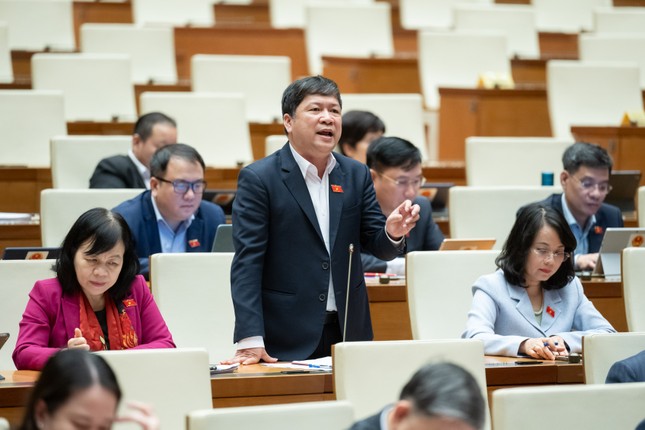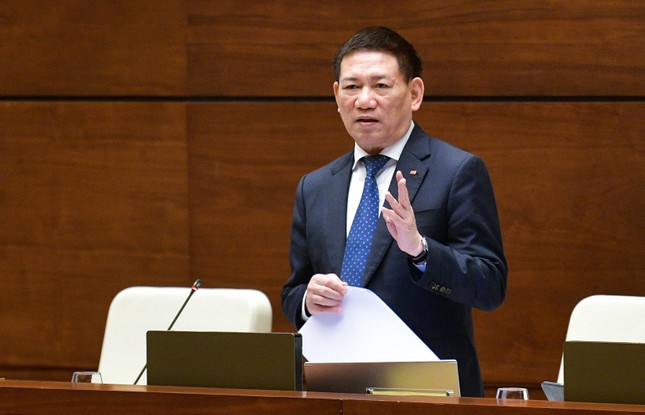There are 200 independent auditing companies in our country.
Addressing the issue of questioning, delegate Pham Van Hoa (from Dong Thap province) cited a report stating that there are currently 200 independent auditing companies in our country. Recently, these companies have performed good auditing work, however, there have also been some negative and problematic cases.
Therefore, the delegate suggests that the Minister of Finance clarify solutions to address this situation. In addition, delegate Hoa also proposes that the Minister of Finance provide solutions to rectify the issue of prohibited goods slipping through customs.

Delegate Ta Van Ha (from Quang Nam)
Answering a question about auditing misconduct, the Minister of Finance states that there have been incidents of misconduct in independent auditing in some criminal cases.
According to the Minister, this is related to various factors, including the abilities of auditors in auditing companies, the sense of responsibility of auditors in carrying out their duties, without excluding cases of collusion and deliberate violation of laws to commit misconduct.
Regarding auditing tasks, the Ministry of Finance has implemented directives from the Party, strengthening training and certification for auditors, setting conditions in accordance with regulations, and organizing strict exams and training.
Mr. Phoc affirms that in the coming time, the Ministry of Finance will continue to tighten the management of auditing companies and strictly handle any misconduct.
Is appraisal “aiding and abetting” price manipulation?
Delegate Ta Van Ha (from Quang Nam) argues about the issue of appraisal. According to delegate Ta Van Ha, in recent cases of misconduct, the role of appraisal companies is also very important, with responsibilities that include “aiding and abetting” price manipulation.
According to the delegate, many factors contribute to this, but the main factor is that there has been an excessive increase in appraisal companies, leading to collusion and misconduct. However, after handling misconduct, there is hesitation to continue, which causes difficulties in economic activities.
Therefore, the delegate requests that the Minister clarify the responsibility of the Ministry of Finance in this matter and provide solutions to overcome the aforementioned limitations in the near future.
In response to the debate, Minister of Finance Ho Duc Phoc affirmed that the opinion stating that the Ministry of Finance has issued many appraisal companies is “not entirely accurate”. According to him, there are only a few hundred appraisal companies in the country, and the Ministry of Finance strictly manages the certification process for appraisers; in recent years, no exam has had a pass rate exceeding 33% of the number of candidates.

Minister of Finance Ho Duc Phoc
He affirmed that there has been strict management in licensing and operations, however, the Minister believes that the recent misconduct is primarily caused by appraisers.
The Minister cited the example of SCB , where leading auditing companies in the world have also violated regulations. This is due to auditors and appraisers, rather than management work.
“We must also admit that some legal documents still have loopholes, which appraisers take advantage of,” said Mr. Phoc.
Referring to the issue of land valuation , according to Mr. Phoc, if the surplus method is applied, all appraisers will be completely wrong. The reason, according to him, is that it is an asset formed in the future and must go through many steps such as planning, design approval, and budgeting, but when audited and inspected, they all do not comply with regulations.
Therefore, the Minister believes that the cause partly lies in the regulations, but also partly in officials intentionally committing wrongdoings; if a wrongdoing occurs, it must be disciplined and even subject to criminal proceedings.















